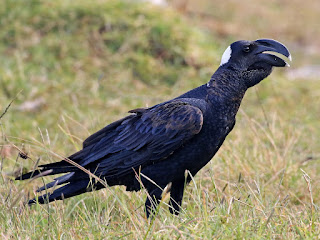We were at the end of the tour to 4 out of 9 World UNESCO sites of Ethiopia. It was a rollicking journey full of surprises and yes, learnings. As we sat in the bus and remembered the good times, I was struck with the thought, why do Indians want to save so much? They happily sacrifice their today for a hopefully better tomorrow.
I know many of my friends who stay in Hyderabad who have never climbed Charminar. Till the early 1980’s it was possible to climb right up to the top of any of the four minarets of Charminar and enjoy the spectacular view. After the horrible Qutub Minar stampede, the government of India banned climbing up Qutub Minar, and promptly, the Andhra Pradesh state government too banned climbing at Charminar. Luckily for me, Abhay Kumar and I climbed the Charminar minarets in the early 1980s when we were doing our intermediate.
Similarly, we met many Indians who stayed in Gondar for years at a stretch and never visited the Gondar Forts. The reason, the entrance fee was 50 Birr (Rs 250) and that was supposed to be exorbitant (by Indian standards).
Picture Courtesy: https://pixabay.com/photos/caravan-desert-safari-dune-camels-3341872/
I have no statistics of Indian teachers who visited The Simien and the Lalibela Churches. Only elders like Dr. Naidu sir and Dr. Azaz Ahmed Sir who have stayed in Ethiopia for many years can clear this query.
I am sure that present-day Indian teachers have it easy. Nowadays Ethiopia has wonderful cemented roads. The road journeys have been cut by half and Bahirdar to Addis Ababa road journey takes 6- 8 hours. In 2003 it took almost 12 – 14 hours on rocky and dusty surfaces!
The bus journey was slow and tedious. To keep the boredom away we played games, quizzes and the quintessential Indian pass-time, Antakshari (a sort of pass-long musical medley).
Our bus was not liking it at all. It was getting annoyed. How could this Indian troupe have it so easy? With an almighty shudder and nerve-wrenching groan, it gave up and the engine died. We were still miles and miles away from Bahirdar. The only saving grace was that the bus broke down in a town. Daniel and the driver got busy. There was nothing we could do.
We wiled away the time. The small town didn’t have anything to offer. We had Shai and bought some Guavas and bananas. Finally, after a titanic struggle of more than five hours, the bus started and we were on our way. Ghion hotel tried its best but the bus was a damp squib. It broke down twice in three days! Not road-worthy at all.
We got down to a post-mortem. I asked about the things that the tour party's likes and dislikes. There was unanimity that all the three places Gondar, Simien mountains and Lalibela were wonderful, the arrangements were good, hotels decent and food excellent. The only anomaly, the slowpoke, a tortoise pretending to be our bus.
 |
| Dr.Kuldeep Singh Gehlot |
I gave a conspiratory wink and told Kuldeep, “Dr. Kuldeep don’t let the bus hear you compare it with a tortoise. Just to prove you correct it might travel even more slowly or break down again, just to spite us!”. We reached Bahirdar by 09:00 p.m.!
The tour party thanked me for arranging such a lovely tour. I thanked each one of them for maintaining strict punctuality and for overlooking any minor irritants during the tour.
A funny incident that happened at Gondar hotel needs to be told. Padma forgot a small bag containing some medicines and omnigel (a cream to cure aching muscles). Taking the help of Daniel, I called the hotel receptionist and asked whether it was possible to get back our medicine bag.
After a long wait, the hotel receptionist came back with a response. The hotel wanted Birr 250 (Rs 1,250) as a fine and asked me to pay the postal charges too. On top of it, the hotel wanted me to give them back the hotel key. Indeed, we had by mistake carried the hotel room key with us. A quick calculation showed us that we need to shell out almost 350 birrs (Rs 1,750) to return the hotel key and get back the medicine bag.
Padma told me that the cost of the medicines and the bag would not be more than 100-150 Indian rupees (20-25 birr). We dropped the entire idea of getting back the small bag as quickly as dropping a bag of hot potatoes.
I still feel that it is the hotel's responsibility to check the room at checkout time and also ensure that the guest doesn’t walk away with the room key. But to expect 350 Birr for returning a small bag was a little too much to digest!
On returning back to Bahirdar, I sat down and prepared the tour expenditure. The result was startling. I had collected 1000 birr as advance but the total expenditure per person came to 787 birrs!
The tour party assembled at our house (except Alex who stayed at PEDA Campus, and Jeevan Sir and Geeta Madam who stayed at the POLY campus). The expenditure sheet was closely examined by all and everyone was thrilled at the low tour cost.
I explained that I divided the entire expenditure by 12. I considered Pranav as a full tour member and that brought down the cost considerably. Dr. Kuldeep who did not like it, one bit. He said, “Anil Bhai, divide the entire amount by eleven and do not consider Pranav as an adult”.
Even though I like what he said, I stuck to my guns. I told him that our family would have undertaken the tour by ourselves. The group members made the trip more enjoyable by their presence.
Most tours exceed the expected budget and getting back nearly Birr 250 was like manna from heaven. For the bachelor Indian teachers, it was their one-month expenditure.
 |
| Alex, The gentle Russian teacher from PEDA Campus |
Alex the quiet Russian was taken aback when I presented the tour expenditure sheet. His English was not very good, but his communication was crystal clear. He enjoyed the trip and thought It was a sacrilege to check the correctness of the tour accounts. It was a refreshing viewpoint. It took all my persuasion skills to make him accept the 213 birr due to him! – 1059 words.




























